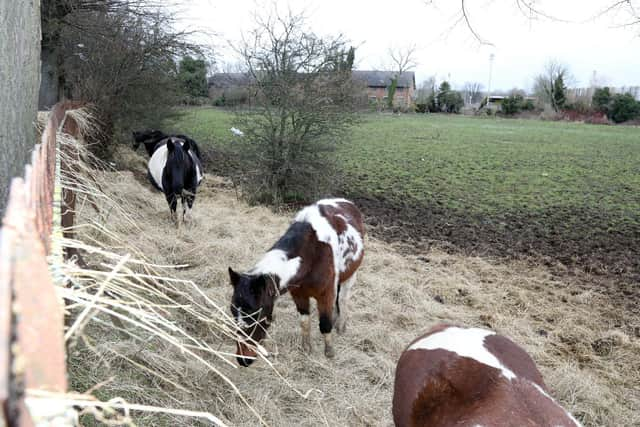School has its say on Wellingborough's Embankment horses


The plight of these animals is regularly raised by people who visit or drive past them and has been for many years.
An online petition was recently started, calling for action to be taken to improve the animals' living conditions with more than 5,300 signing it.
Advertisement
Hide AdAdvertisement
Hide AdWellingborough School, which part owns Stoneygate Meadow - the area of land opposite Tesco on Turnells Mill Island - has now commented on the horses' situation.


A statement issued by the school said: "Historically this land was tenanted to a local farmer for livestock grazing.
"The tenancy was given up when horses began to be deposited, without the school or tenant's consent.
"The school has never consented to the land being used for these animals, particularly since it still forms part of the flood plain, although instances when it is fully underwater are now rare.
Advertisement
Hide AdAdvertisement
Hide Ad"The school has sought advice from relevant bodies, and has been advised by the RSPCA that unless the horses’ welfare is considered an immediate risk or if they are deemed to be in danger, they will not intervene."
The statement went on to say that the organisations consulted have strict conditions under which they can legally intervene and take animals into protective 'custody'.
And added: "So far, they advise that they have been unable to demonstrate the necessary level of neglect in order to be able to take action, under the powers that they have access to, with any prospect of success.
"Wellingborough School has concerns for the welfare of all animals but believes that it should work with those organisations who have the powers to intervene with the objective of seeking a permanent solution which provides these horses with the level of care that they deserve on a permanent basis and that short term measures, which may be counter productive to the overall objective, are not in the long term interests of the horses."